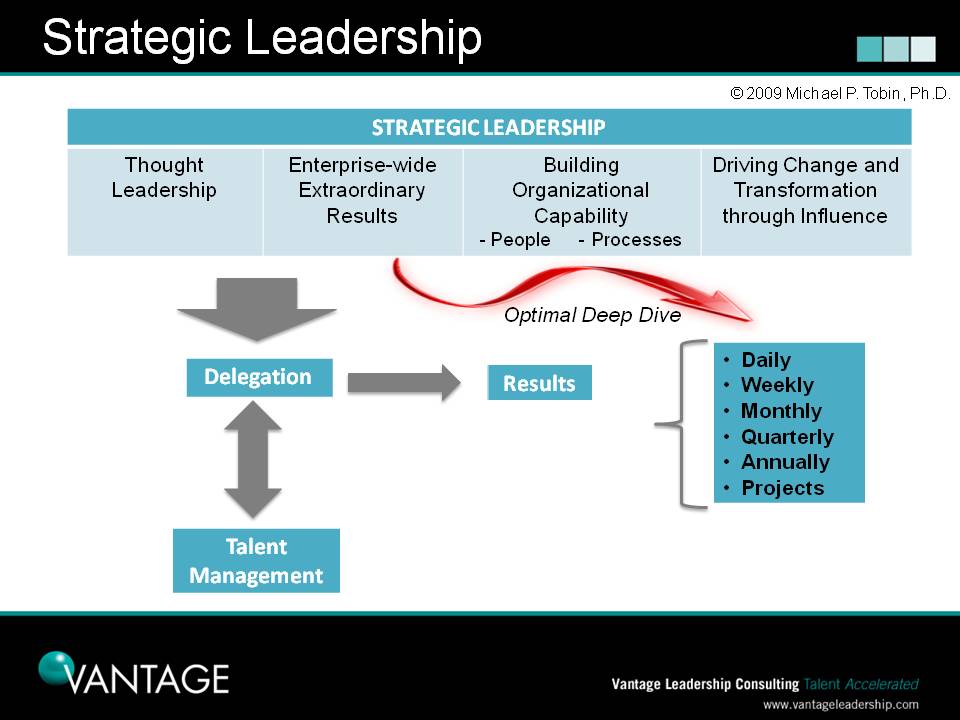In a previous post , we discussed the central role which delegation plays in strategic leadership (see illustration below). We stated that among its many effects on business, delegation frees time for executives to lead at a strategic level through the behaviors shown at the top of our model. We also suggested that a leader who does not delegate effectively fails to build organizational capability and therefore, has limited advancement potential.
In our 45 years of assessing and developing executives, we have encountered hundreds of leaders who are challenged by the task of delegation. While a small number of them can be written off as “control freaks,” that’s too facile an explanation, and doesn’t address the real issue. The main reason leaders do not delegate is because they don’t trust their direct reports to deliver results at the level of value (quality, innovation, cost, etc.) demanded by key customers.
Delegating the important stuff really seems to be high-risk behavior. Irresponsibly risky, like abdication. But this is not true if the leader practices strategic talent management. As I like to say to John the Leader, “If you had four of YOU, you would delegate with confidence, right?” Two of the key delegation sins – covering/compensating for your team and micromanaging them – are absurd wastes of time if you believe your people are as strong as YOU are.
At Vantage, we believe that the main reason leaders are reluctant to delegate important decisions and deliverables to their direct reports is that they do not have strong enough personnel reporting to them. Many leaders have failed to hire or develop a team with enough talent to trust them to deliver mission-critical results.
Our model illustrates the intricate relationships among strategic leadership, delegation, and talent management. We emphasize that true delegation is impossible without great talent. At the same time, the key to talent management is delegation and coaching, to accelerate the readiness of talented people to step up to big responsibilities. Delegation and talent management is a symbiotic relationship, in which each component depends on the other to fully express its power for the organization.
Having great teams whom you can trust to “deliver the month” is a key leadership responsibility. Sadly, even today, it is also still a relatively undeveloped leadership skill. As we mentioned previously, there is no activity which accelerates the development of talented individuals faster than the responsibility to deliver key results. Hire great people and give them a lot of responsibility to deliver. Provide developmental feedback instead of control. There’s a big ROI in this practice, including attracting great talent and building sustainable organizational capability.


